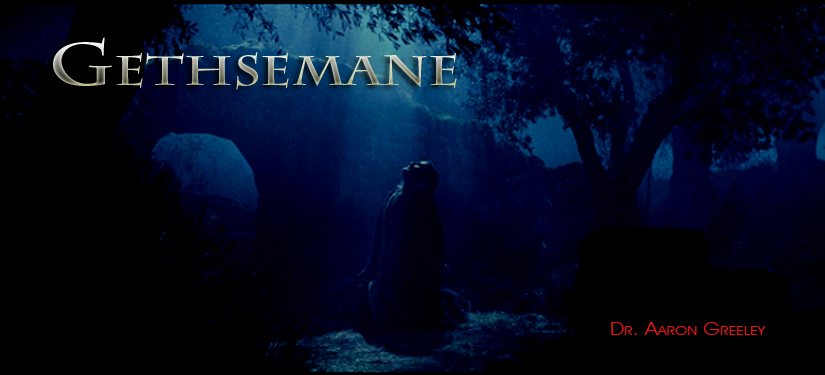The Anonymous Man of Mark 14
“And a young man followed him,
with nothing but a linen cloth”—
The story of a young man fleeing for his life is recorded only in Mark.
Why was this story inserted? and what is its meaning?
41 And he came the third time and said to them, “Are you still sleeping and taking your rest? It is enough; the hour has come. The Son of Man is betrayed into the hands of sinners. 42 Rise, let us be going; see, my betrayer is at hand.”
43 And immediately, while he was still speaking, Judas came, one of the twelve, and with him a crowd with swords and clubs, from the chief priests and the scribes and the elders. 44 Now the betrayer had given them a sign, saying, “The one I will kiss is the man. Seize him and lead him away under guard.” 45 And when he came, he went up to him at once and said, “Rabbi!” And he kissed him. 46 And they laid hands on him and seized him. 47 But one of those who stood by drew his sword and struck the servant[e] of the high priest and cut off his ear. 48 And Jesus said to them, “Have you come out as against a robber, with swords and clubs to capture me? 49 Day after day I was with you in the temple teaching, and you did not seize me. But let the Scriptures be fulfilled.” 50 And they all left him and fled.
51 And a young man followed him, with nothing but a linen cloth about his body. And they seized him, 52 but he left the linen cloth and ran away naked. —Mark 14:41-51
After the disciples fled (with their clothes on their backs), Mark 14:51-52 tells of an anonymous young man who followed Jesus in a linen cloth. The arresting authorities tried to arrest him as well but the young man slipped away, leaving behind his linen garment and runs away naked.
This man could be anyone living nearby Gethsemane who, awakened by the commotion, goes outside in his “pajamas” to see what is happening. Curious about what is going on, he follows the angry mob. He may have been mistaken as a follower of Jesus and wrongfully seized. However, he escapes by slipping out of his linen garment and runs away naked.
What I find telling about this story is not who the man is but his reaction to the situation. He ran away naked in shame. It is such a human reaction. When we are shamed we tend to run and hide. Sometimes we might fight back, but generally we want to run away and hide. In fact, we have been running away from our shame from the very beginning. Consider Gen 3:1-10. When the innocence of Adam and Eve was stripped away and they knew good from evil, “the eyes of both were opened” and seeing their nakedness they hid themselves in shame. You and I do the same. It is human nature. I suppose the identity of the anonymous young man in Mark 14 is known after all. He is us!
Contrast that with what happens with Jesus. His clothes were stripped off as well; beaten, mocked and crucified. Yet he didn’t run away. Imagine the shame of being abandoned everyone you have worked to love; the shame of your reputation being trashed by false accusations; the shame of being stripped naked and mocked. Imagine all of your dignity being removed for public torture. How did Jesus not run away? Consider Hebrews 12:1-2—
Therefore, since we are surrounded by so great a cloud of witnesses, let us also lay aside every weight, and sin which clings so closely, and let us run with endurance the race that is set before us, 2 looking to Jesus, the founder and perfecter of our faith, who for the joy that was set before him endured the cross, despising the shame, and is seated at the right hand of the throne of God.
Isaiah 50:5-9 perhaps defines what “despising the shame” looks like from Jesus’ perspective—
5 The Lord God has opened my ear, and I was not rebellious; I turned not backward. 6 I gave my back to those who strike, and my cheeks to those who pull out the beard; I hid not my face from disgrace and spitting.
7 But the Lord God helps me; therefore I have not been disgraced; therefore I have set my face like a flint, and I know that I shall not be put to shame. 8 He who vindicates me is near. Who will contend with me? Let us stand up together. Who is my adversary? Let him come near to me. 9 Behold, the Lord God helps me; who will declare me guilty? Behold, all of them will wear out like a garment; the moth will eat them up.
From my perspective, the shame of my sin is overwhelming. I want to run and hide from my nakedness. Shame on me! As for Jesus, he had nothing to be ashamed of, but was made to feel shame undoubtedly. Yet he didn’t turn back and hide. Instead he was solidly determined. He despised the shame.
Because of his courage, determination, and love, we can do as Hebrews says and lay aside the weights of sin, regret and shame. We can take up our own cross and follow him because of the joy Jesus has set before us—
Though you have not seen him, you love him. Though you do not now see him, you believe in him and rejoice with joy that is inexpressible and filled with glory, 9 obtaining the outcome of your faith, the salvation of your souls. —1 Peter 1: 8. 9
All biblical quotations are from the the English Standard Version.
Article based on oral comments made before the congregation during communion, April 2017.
Church of Christ, Valley Congregation (Phoenix, AZ).
Used here by kind permission.



